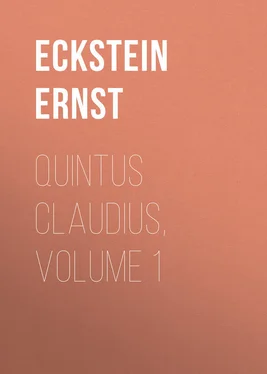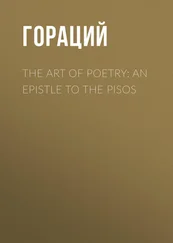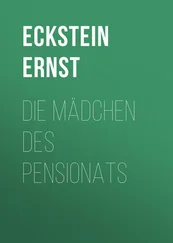Ernst Eckstein - Quintus Claudius, Volume 1
Здесь есть возможность читать онлайн «Ernst Eckstein - Quintus Claudius, Volume 1» — ознакомительный отрывок электронной книги совершенно бесплатно, а после прочтения отрывка купить полную версию. В некоторых случаях можно слушать аудио, скачать через торрент в формате fb2 и присутствует краткое содержание. Жанр: foreign_antique, foreign_prose, на английском языке. Описание произведения, (предисловие) а так же отзывы посетителей доступны на портале библиотеки ЛибКат.
- Название:Quintus Claudius, Volume 1
- Автор:
- Жанр:
- Год:неизвестен
- ISBN:нет данных
- Рейтинг книги:4 / 5. Голосов: 1
-
Избранное:Добавить в избранное
- Отзывы:
-
Ваша оценка:
- 80
- 1
- 2
- 3
- 4
- 5
Quintus Claudius, Volume 1: краткое содержание, описание и аннотация
Предлагаем к чтению аннотацию, описание, краткое содержание или предисловие (зависит от того, что написал сам автор книги «Quintus Claudius, Volume 1»). Если вы не нашли необходимую информацию о книге — напишите в комментариях, мы постараемся отыскать её.
Quintus Claudius, Volume 1 — читать онлайн ознакомительный отрывок
Ниже представлен текст книги, разбитый по страницам. Система сохранения места последней прочитанной страницы, позволяет с удобством читать онлайн бесплатно книгу «Quintus Claudius, Volume 1», без необходимости каждый раз заново искать на чём Вы остановились. Поставьте закладку, и сможете в любой момент перейти на страницу, на которой закончили чтение.
Интервал:
Закладка:
And she flew back into the house, where they heard her fresh, happy voice still calling: “Quintus!”
“My adopted daughter," 62 62 Adopted Daughter. The adoption of a child in ancient Rome was regulated by very strict laws. Adoption in its narrower sense ( adoptio ) extended to persons who were still under paternal authority; with self-dependent persons the so-called arrogatio took place. With women this last form was entirely excluded.
said Octavia, in answer to an enquiring glance from Aurelius.
“Lucilia,” added Claudia, “whom I love as if she were my own real sister.”
Aurelius, who had sprung from his horse, throwing the bridle to his faithful Magus, was on the point of conducting Octavia into the atrium, 63 63 Atrium. From the door of the house a narrow passage ( ostium ) led to the first inner court, the atrium, so-called because this space, where the hearth originally was, was blackened by the smoke ( ater ). The atrium, which in the more ancient Roman houses possessed the character of a room with a comparatively small opening in the roof, and afterwards resembled a court-yard, was at first the central point of family life, the sitting-room, where the industrious house-keeper sat enthroned among her slaves. When republican simplicity gave way to luxury, the atrium became the hall devoted to the reception of guests, and domestic life was confined to the more retired apartments.
when a youth of remarkable beauty appeared in the door-way and silently clasped this lady in his arms. Then he pressed a long and loving kiss on Claudia’s lips, and it was not till after he had thus welcomed the mother and daughter, that he turned hesitatingly to Aurelius, who stood on one side blushing deeply; a sign from Octavia postponed all explanation. The whole party entered the house, and it was not till they were standing in the pillared hall, where marble seats piled with cushions invited them to repose, that Octavia said to the astonished youth with a certain solemnity of mien:
“Quintus, my son, it is to this stranger – the noble and illustrious Caius Aurelius Menapius, of Trajectum, in the land of the Batavi – that you owe it that you see us here now. He took us on board his trireme, for our boat was sinking. I declare myself his debtor henceforth forever. Do you, on your part, show him all the hospitality and regard that he deserves.” Quintus came forward and embraced Aurelius.
“I hope, my lord,” he said with an engaging smile, “that you will for some time give us the honor of your company and so give us, your debtors, the opportunity we desire of becoming your friends.”
“He has already promised to do so,” said Octavia.
Lucilia now joined them, having put on a handsomer dress in honor of the stranger, and stuck a rose into her chestnut hair; she sat down by Claudia and took her hand, leaning her head against her shoulder.
“But tell us the whole story!” cried Quintus. “I am burning to hear a full and exact account of your adventure.”
Octavia told her tale; one thing gave rise to another, and before they thought it possible, it was the hour for dinner – the first serious meal of the day, at about noon – and they adjourned to the triclinium. 64 64 Triclinium, (triple couch) really the sofa on which three, and sometimes even more persons reclined at table; the name was also given to the dining-room itself, which comprised the second inner court-yard, the so-called peristyle or cavaedium.
Under no circumstances do people so soon wax intimate as at meals. Aurelius, who until now had listened more than he had spoken, soon became talkative under the cool and comfortable vaulted roof of the eating-room, and he grew quite eager and vivacious as he told of his long and dangerous voyage, of the towns he had visited, and particularly of his distant home in the north. He spoke of his distinguished father, who, as a merchant, had travelled eastwards to the remote lands east of the peninsula of the Cimbri 65 65 Cimbrian Peninsula, now called Jutland.
and to the fog-veiled shores of the Guttoni, 66 66 Guttoni. A German race on the lower Vistula.
the Aestui 67 67 Aestui. A German race living on the coast of Revel.
and the Scandii; 68 68 Scandii. Inhabitants of southern Sweden.
indeed Aurelius himself knew much of the wonders and peculiarities of these little-visited lands, for he had three times accompanied his father. Many a time on these expeditions had they passed the night in lonely settlements or hamlets, where not a soul among the natives understood the Roman tongue, where the bear and the aurochs fought in the neighboring woods, or eternal terrors brooded over the boundless plain.
These pictures of inhospitable and desert regions, which Aurelius so vividly brought before their fancy, were those which best pleased his hearers. Here, close to the luxurious town, and surrounded by everything that could add comfort and enjoyment to life, the idea of perils so remote seemed to double their appreciation. 69 69 The Sense of Contrast was a conspicuous trait in Roman character. They were wont to heighten their appreciation of the joys of life by images of death, and the dining-room was intentionally placed so as to afford a view of tombs.
When they rose from table the ladies withdrew, to indulge in that private repose which was customary of an afternoon. Lucilia could not forbear whispering to her companion, that she would far rather have remained with the young men – that Aurelius was a quite delightful creature, modest and frank, and at the same time upright and steady – a rock in the sea on which the Pharos of a life’s happiness might be securely founded.
“You know,” she added earnestly, while her eyes sparkled with excitement from under her thick curls, “Quintus is far handsomer – he is exactly like the Apollo in the Golden House 70 70 The Golden House ( domus aurea ). The name given to the magnificent palace of Nero, which extended from the Palatine Hill across the valley and up again as far as the gardens of Macaenas on the Esquiline. It contained an enormous number of the choicest works in statuary. Vespasian had a large part of this building pulled down.
by the Esquiline. But he is also like the gods, in that he is apt to vanish suddenly behind a cloud, and is gone. Now Aurelius, or my soul deceives me, would be constant to those he loved. It is a pity that his rank is no higher than that of knight, and that he is so unlucky as to be a native of Trajectum.”
“Oh! you thorough Roman!” laughed Claudia. "No one is good for anything in your eyes, that was not born within sight of the Seven Hills." 71 71 The Seven Hills. Contempt for all who lived in the provinces was peculiar to all Romans, even the lowest classes of the populace. Thus Cicero says: “ Cum infimo cive romano quisquam amplissimus Galliae comparandus est? ” (Can even the most distinguished Gaul be compared with the humblest Roman citizen?) This prejudice extended to later centuries, though under the first emperors numerous inhabitants of the provinces attained the rank of senator and reached the highest offices. It is very comical, when Juvenal, a freedman’s son, treats the “knights from Asia Minor,” ( Equites Asiani ) condescendingly, as if they were intruders, unworthy to unfasten the straps of his sandals. Inhabitants of the other provinces were held in higher esteem than the Greeks and Orientals. But even Tacitus ( Ann. IV, 3.) regards it as an aggravation of the crime committed by the wife of Drusus, that Sejanus, for whom she broke her marriage-vow, was not a full-blooded Roman, but merely a knight from Volsinii.
She put her arm round her gay companion, and carried her off half-resisting to their quiet sleeping-room.
Читать дальшеИнтервал:
Закладка:
Похожие книги на «Quintus Claudius, Volume 1»
Представляем Вашему вниманию похожие книги на «Quintus Claudius, Volume 1» списком для выбора. Мы отобрали схожую по названию и смыслу литературу в надежде предоставить читателям больше вариантов отыскать новые, интересные, ещё непрочитанные произведения.
Обсуждение, отзывы о книге «Quintus Claudius, Volume 1» и просто собственные мнения читателей. Оставьте ваши комментарии, напишите, что Вы думаете о произведении, его смысле или главных героях. Укажите что конкретно понравилось, а что нет, и почему Вы так считаете.












